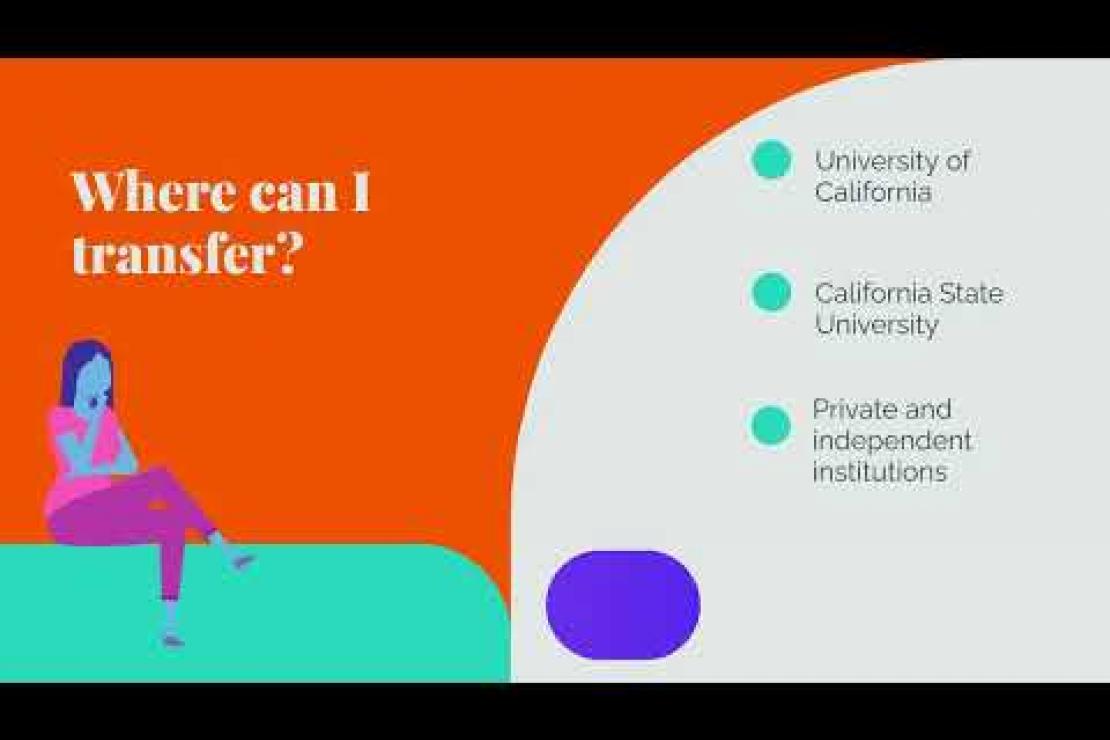Transfer Center FAQ
Transfer Center Frequently Asked Questions (FAQs)
Community colleges (like Los Angeles City College) offer Associate of Arts and Associate of Science degrees. It requires that you complete a minimum of 60 units of general education and/or major classes. At Los Angeles City College there are two plans that can be followed for an Associate of Arts or Associate of Science degree. (Please see a counselor for further explanation.) Associate of Arts and Associate of Science degrees are offered at two-year colleges.
A four-year college or university offers the Bachelor of Arts and Bachelor of Science degrees, which are more advanced. It requires that you complete a minimum of 120 semester units (depending on your major) before graduating with a Bachelor's degree. You may complete 60 lower-division units at a community college and approximately 60 upper-division units at a university.
Lower-division courses are survey or introductory classes. On many college campuses (two and four year colleges and universities), lower-division classes are numbered 100 - 299. Upper-division classes generally specialize in your chosen major and are more advanced. These courses are usually numbered 300 - 499.
Community colleges do not offer upper-division classes. Some community college classes may number above 299, but these classes are for specialized certificate programs. Usually you must take lower-division courses before enrolling in upper-division classes.
A student's career choice may require a degree beyond the Associate of Arts, Associate of Science or a Certificate completed at a community college.
Generally, community colleges offer classes that are at the freshman and sophomore levels. For some careers, an Associate’s degree is sufficient. However, other careers may require the advanced classes offered at four-year institutions.
The Transfer Center is located on the 2nd floor of the Student Services building. Check the Transfer Center home page for our office hours.
Counselors located throughout the campus can give you information on universities.
Instructors who teach classes in your major can often provide information about colleges and universities that offer strong programs in your field of interest.
The campus library or public libraries also offer information on colleges and universities.
Numerous websites provide relevant up-to-date information on colleges and universities.
- One-on-one college/university consultation/advisement
- University preparation workshops
- University representatives, outreach and faculty meetings with students at LACC
- Peer advisors from UCLA meet with LACC students at the Transfer Center
- Admissions application assistance to 4-year universities
- IGETC, CSU GE, ASSIST and other general education and major preparation information
- Transfer major-specific workshops
- Guaranteed Transfer Agreement information
- Annual University Transfer Day
To transfer as an "upper-division student" at junior level standing, you need to complete approximately 60 transferable units. These classes should include identified general education, major, and, if needed, elective courses. If you choose to transfer as a "lower-division student," you must send community college transcript(s), high school transcript(s), and SAT scores along with the college application.
At Los Angeles City College you can complete the lower-division classes in general education and a major. These classes are usually numbered 100 - 299. Since your major for transfer may change while you are here at LACC, it is important that you meet with a counselor to adjust your course of study to meet required transfer courses.
There are several options. Your options include the University of California, California State University, University of Southern California, and other private and independent institutions.
LACC students also transfer to out-of-state, international, and historically black colleges and universities.
The University of California (such as UCLA, UCSB, UCB, and UCR) has nine undergraduate campuses. They offer degrees ranging from the Bachelor of Arts/Science to degrees such as the Doctoral of Philosophy (PhD) or Doctoral of Education (EdD). The UC system also has a variety of graduate level professional schools, Law Schools and Schools of Medicine. Along with education, research is a primary mission.
California State University (CSU) is a 23-campus system, which includes CSULA, CSULB, CSUN, CSUDH and others. They offer the Bachelor of Arts/Science and Masters (graduate) degrees.
Come to the campus Transfer Center. We are here to serve you.

